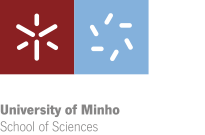Description
The Master Degree in Molecular Genetics is organized according to the principles of Bologna process, comprising two years and 120 credits (ECTS). In the first year the Master?s programme encompasses eight curricular units designed to provide students with high-level knowledge and training in the fields of Cellular and Functional Biology and Molecular Genetics and Biotechnology. The courses focus mainly on the molecular understanding of cellular function and complex biological processes, and on the use of modern research tools and techniques to unravel these molecular mechanisms. In the second year students will develop individual research projects, which will be formally presented both written, as a thesis, and orally in a public discussion.
Access to higher education
This Master degree provides basic training to carry out a course of 3rd cycle (PhD) in the same scientific area, or other areas
Careers
- Researchers in Universities and research centers or R&D companies;
- Specialized laboratory technicians in the agro-alimentary sector, laboratories, clinics, hospitals, research centers, schools and universities;
- Sales agents in the pharmaceutical industry or companies selling scientific equipment and materials;
- Experts in national / international or non-governmental organizations.

